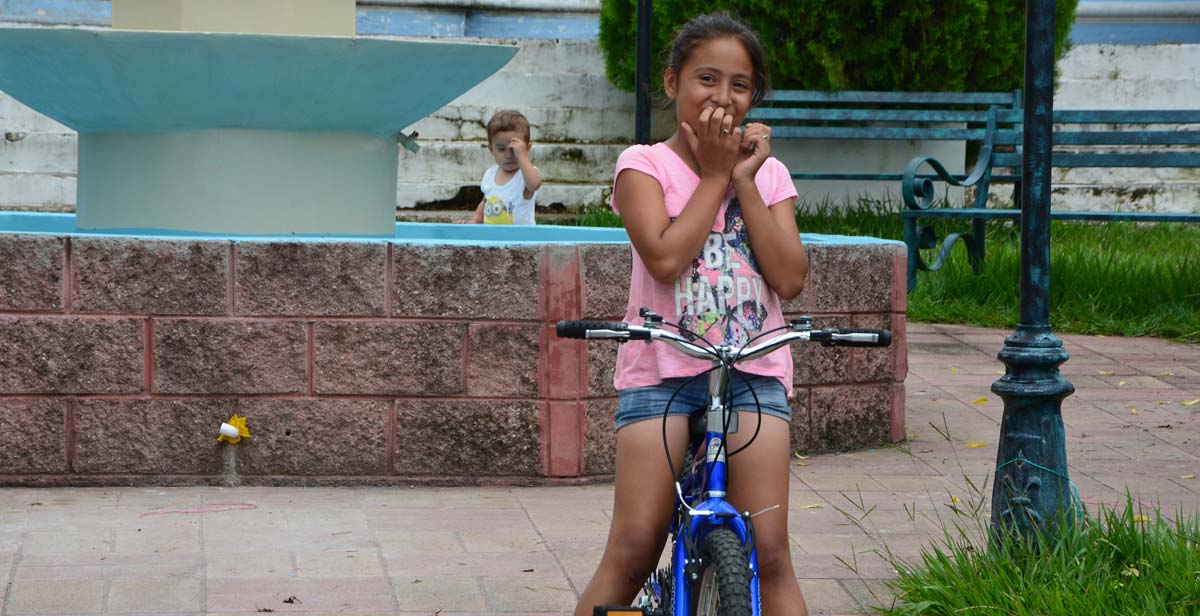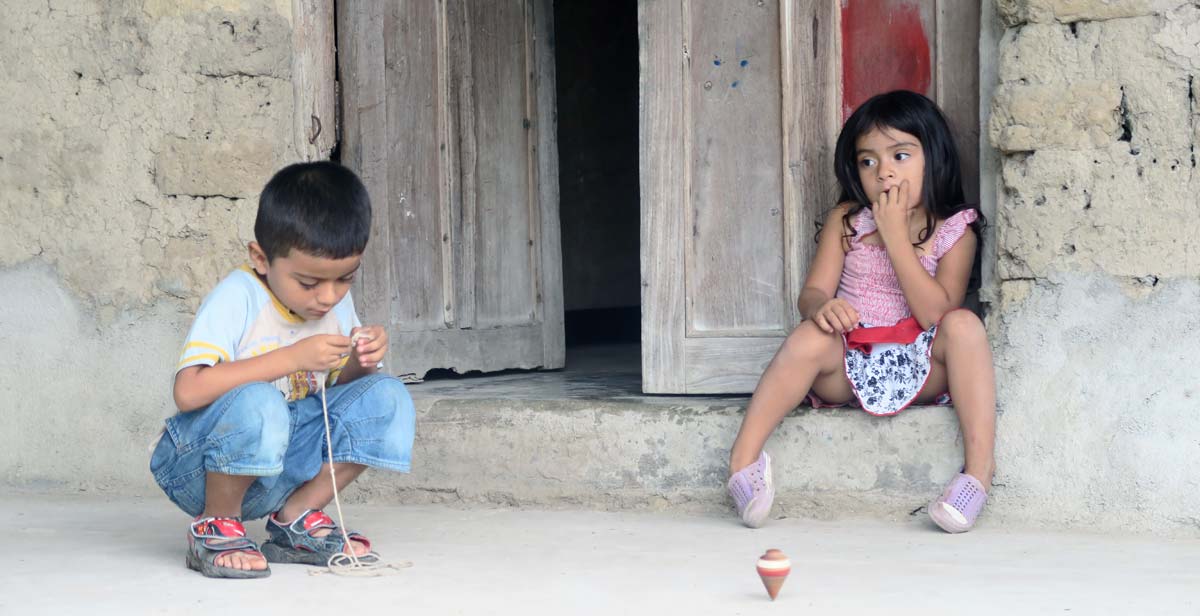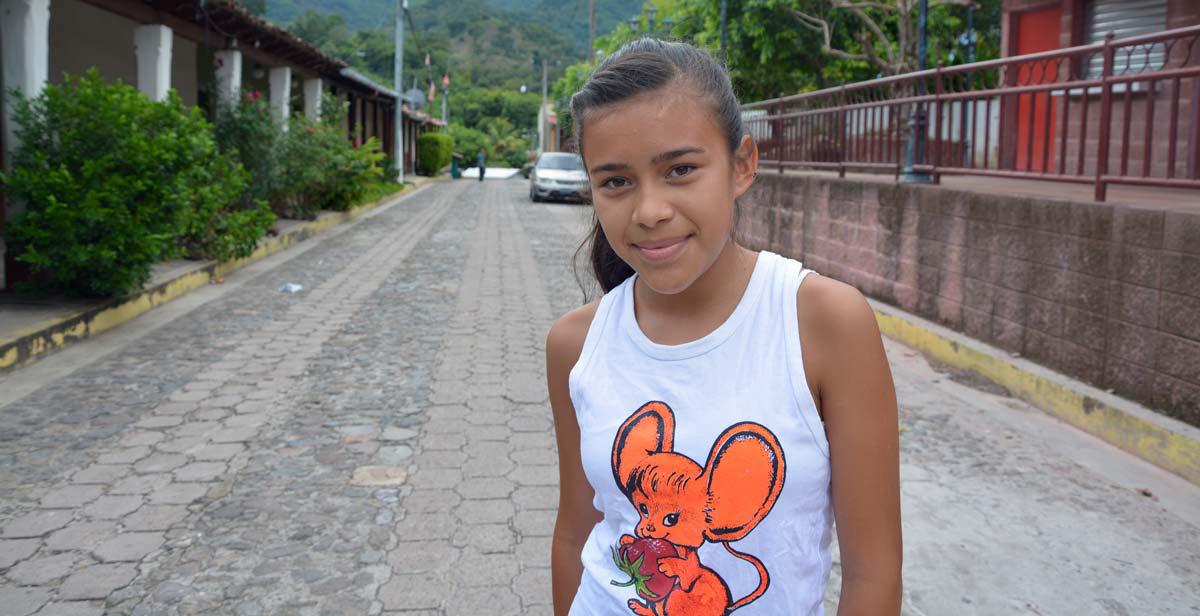On 11 October, we observe the fourth International Day of the Girl Child, as declared by the United Nations. The aim of the day is to support greater opportunities for girls, who make up 1.1 billion of the world’s population, and increase awareness of gender inequality faced by girls globally. Such inequalities include: access and a right to an education, nutrition, medical care, legal rights, protection from discrimination, violence against women and child marriage.
One of the main issues that Progressio works to tackle is gender inequality, and has been one of the main focuses in our two-week orientation here in El Salvador through various workshops specifically on masculinities and gender. To raise awareness of International Day of the Girl Child we decided to consider gender roles here in El Salvador and more specifically Arcatao (the town we are volunteering in) through speaking to both local women and UK volunteers about their experiences from when they were girls.*
 Local girl playing on a bicycle outside the Catholic Church
Local girl playing on a bicycle outside the Catholic Church
We spoke to national volunteers and some of our host family members. Their first memories consisted of them playing with their girlfriends at school, and with their families, as well as being naughty. Their aspirations when they were girls were to continue their education, to be teachers, lawyers and nurses. All agreed that girls are very important to society because they are the future women and that ensuring their education is key to sustaining their hopes and dreams for the future. They further noted that men and women rely on each other equally and therefore should be raised and treated equally.
UK volunteers first memories from their girlhood included eating apple pancakes in Belgium, playing with a best friend who was a boy and a younger sister being born. Their aspirations as girls included wanting to be a forensic scientist, own a chip shop, be a weather girl and be a fashion designer.
These answers indicate that all girls have big dreams, regardless of location and nationality. Ultimately both UK and Salvadorian women agreed when they said that girls are the future women of society, who have the ability and should have the right to contribute to society in equal measure with men. Particular emphasis was placed on the fact that “girls, like all humans, should have equal rights to be heard, respected and protected.” From their childhood dreams for their future selves, their first memories and their views on the importance of girls to society, the similarities in the answers are clear and indicate our universal desire for gender equality globally.
 A young girl and boy playing in the street
A young girl and boy playing in the street
In the masculinities and gender workshops we partook in over the past two days, run by Centro Bartolomé de las Casas, Progressio’s partner charity based in San Salvador who focus on regeneration and promoting gender equality, we worked to deconstruct traditional gender stereotypes, both physical and mental, which are perpetuated in hegemonic societies globally. We looked at the devices which perpetuate these stereotypes in our societies, including language, media, socio-economic and political structures. Understanding how patriarchal societies work to propagate ideas of male and female gender stereotypes, which promote sexism and homophobia, is the first step to deconstructing it and reconstructing a new society in which all humans, regardless of gender or sexual orientation, have equal rights. Whether or not we had much awareness of the core issues before the workshop, it is certain that many of us learnt a lot and it is vital that these issues are at the forefront of our minds so that we can actively engage with and change our behaviour for the better. As the ICS motto goes, “Challenge yourself to change your world”, so that all children’s dreams can be fulfilled.
* It is important to note the socio-political history of the country, specifically Arcatao’s involvement in the recent 12-year civil war, in which women played a significant role. In stating this, we wish to acknowledge that gender issues globally and specifically in El Salvador are incredibly complex in ways that we could not possibly do justice to in one blog.
Written by ICS volunteer Isabel Campbell



